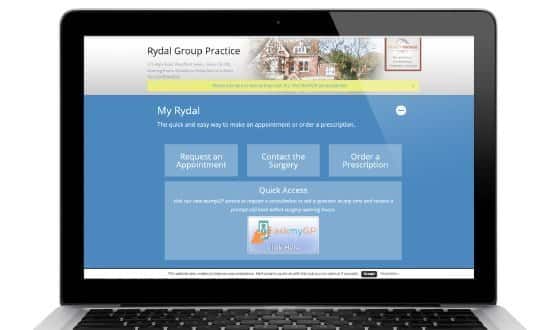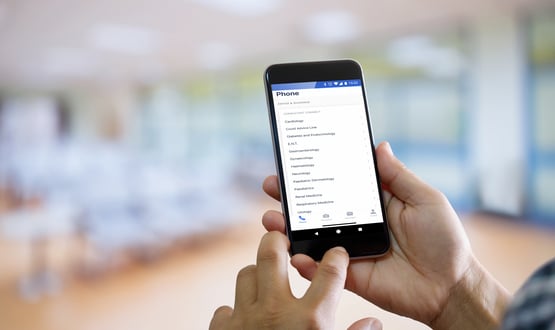Asking the question

Among the many health messages that the different political parties have pushed in the past few years, one that seems to have been consistent across the board is that of patient power.
The likes of Jeremy Hunt, Andy Burnham and Norman Lamb have followed in the footsteps of their predecessors in the 1990s and 2000s in calling for patients to be at the centre of their care, with more control and, crucially, more choice.
One practice trying out a new way of working is Rydal Group Practice, part of the NHS Redbridge Clinical Commissioning Group in east London.
For the past few months, it has been working with a company called GP Access to get patients to use an online booking system called AskMyGP http://askmygp.uk to get in touch with the practice, rather than calling in.
The intention was to put a usable digital front end on an existing phone service that enables patients to phone in and speak to a receptionist, who then arranges for a GP to call back for a remote consultation. “We were just looking at new ways for patients to contact us online,” says practice manager Dorota Jedlinkski.
The practice had tried an online patient access service via TPP’s SystmOne GP system, but it wasn’t well used, due in part to the need for a username and a complex password. “The password put everyone off; they just weren’t interested. Now they can just log onto our website and click a button.”
A simple system
And the system does seem simple enough. When a patient visits the practice’s website, they are presented with the usual contact information but also a ‘quick access’ option that takes them to the AskMyGP page.
Here, the user is given two options: they can either find advice on their condition on NHS Choices or they can start the online process to get in touch with Rydal Group Practice.
If they choose the latter, they can then confirm if they are a patient or a parent or carer of a patient, before entering the necessary contact details and a brief summary of their medical problem or reason for getting in touch.
They also have the chance to name a specific GP they want to see. A receptionist looks at the information and passes it onto a GP.
If the request is an administrative one, such as renewing a prescription, the practice can deal with it without needing to call the patient. Otherwise, the practice arranges a call-back time for a remote consultation, at which the GP can arrange a face-to-face consultation if necessary.
Dr Ed Diggines, a GP at the practice, says one patient who submitted a query online at 8.37am on the day that Digital Health News visited, received a call back at 8.50am, arranged an appointment for 9.50am, and was probably out of the door by 10am. “It’s so simple,” he says.
Early days
The system is still in its early days, however, and staff acknowledge they haven’t got it working to its full potential “It doesn’t seem like the phones are ringing any less if I’m honest,” says Jedlinkski.
Diggines also feels the system “is not yet slick enough” to be able to provide a real alternative that can take pressure off the reception staff, who are still dealing with a large volume of calls each day.
The practice is working on making the system more suitable for its processes, however, and one of the most important developments has been reworking the form that patients fill in online.
Diggines explains that when Rydal Group first introduced the system, patients were faced with a series of questions to help guide them to the treatment they might need.
These were similar to what a patient might come across when using NHS 111; and were intended to filter out some of the work for the receptionists, and to provide more information for GPs. However, the practice found that a lot of people were falling out during this stage.
“The questions were repetitive,” says Diggines. “And patients didn’t know how long it was going to go on for, so they would just give up and not get to the thing that is really useful to us, which is the free text box.”
Now, when people use the service they are presenting first with a free text box and then asked if they would like to go through the questionnaire. “Patients are really good at giving us the information we need just using free text,” says Diggines.
Finding the benefits
The practice is also finding other ways where the system can provide benefit. This includes its 24/7 nature, which had led to people submitting requests at the weekend, in the knowledge that they will get a call back on Monday morning. “They don’t have to wait around until 8am [on Monday] and phone up,” says Diggines.
It’s in the area of long-term conditions that Diggines thinks the tool can have the most impact, however. He suggests that patients with conditions such as diabetes and asthma could submit information on their condition ahead of a meeting with their clinician, in order to make the most of a consultation.
Part of the vanguard
This new way of working is part of a wider ambition for a more joined up care system in Rydal Practice, which is part of the Barking and Dagenham, Havering and Redbridge System Resilience Group – one of 37 vanguard sites in NHS England working on new models of care.
Diggines hopes the work in this area will lead to a “single point of access” for care for patients, whether they want to go to A&E or use a GP. A tool like AskMyGP might be the solution, although maybe not in its current form. NHS 111 is working on something similar, and may get traction through central backing.
Whatever tool might come to the fore, Diggines is certain that the future lies in integration and using digital technology effectively.
“People like to talk about innovation, but people will spend a lot of money on stuff that leads nowhere; like everyone is trying to produce these all inclusive interoperability programmes that can integrate between different areas. But a very simple solution like [AskMyGP] can make a very big difference.”
“Something like the vanguard, which is all about a single point of access, is crying out for something like this. We are getting there. I’m not saying this is the solution, but something like this can make a huge difference. “




